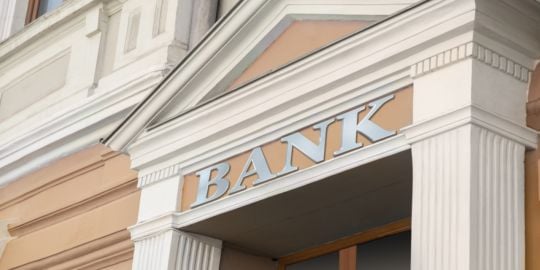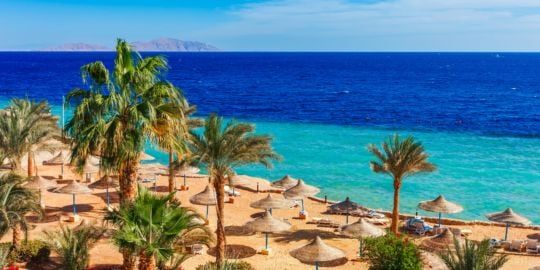What is Ramadan?
Ramadan is the 9th month in the Hijra Calendar. Ramadan for those of you who are not familiar with it is the Muslim's holy month of fasting from sunrise to sunset.
During this month Muslims world wide go about their daily routines but while they refrain from eating, drinking, smoking and (uhmm) no hanky panky until sunset.
The act of fasting is meant to be a way to teach Muslims how to be patience as well as modest. It is also a time for reflection, prayer and spirituality.
In prayer Muslim's ask God (Allah) for forgiveness for the sins that they have committed during the past year. They will also ask God to give them strength to guide them and help them stay away from temptation and evil.
It is also a time for thinking of those less fortunate than themselves. You will find that people give bags filled with rice, pasta, oil, sugar, tomato paste and other things. These gifts are usually given to the hired help, bawabs (care taker of the building) and anyone whom you think is needy at the beginning of the month.
There are tents that are set up across the city, to feed those who can not afford to feed themselves. The food is for free and they are often given money at a value of 10LE.
The five prayers that a Muslim is expected to pray on a daily basis do not change. An additional prayer takes place only during the Month of Ramadan and that is known as the Taraweeh. You will find that after Iftar (breaking of the fast) many people will leave their homes with their prayer mats and Quraan to go to the mosque to take part in the prayer. Depending on the Sheikh of the month, the prayers could last to over an hour.
Also during the month Muslim's should read their holy book, The Quraan from beginning to end. It was during the month of Ramadan that the first verses of the Quraan were revealed to the Prophet Mohamed.
So, as you can imagine, this is a VERY spiritual time in Muslim countries.
If you want to read more about Ramadan, visit;
http://en.wikipedia.org/wiki/Ramadan
What to expect during Ramadan
What I really like about the month is that it is a time when families come together to break their fast and relatives that aren't seen often come over to break fast or to have suhour. Suhour is the late night snack/meal that people will have to help them get through the next day without being hungry. It is supposed to be a simple affair but over the years it has grown in to a BIG event, like a dinner party.
During this time, it would be best that you eat at home. The restaurants will not be functioning to their full capacity and the food won't be as good. Try not to go out to a restaurant for Iftar, because you will not be satisfied with the service or the quality of the food.
Working hours (government offices, companies and schools) will start later and end earlier.
You will find that most of the people who are addicted to coffee or smoking are not in the best of moods during this month, their cranky and can be quite stand offish too.
A word to the wise, if you are doing renovations, work in a factory you will find that your staff will not be putting in 100% effort and are best described as lazy. They will use the excuse of fasting for their lack of concentration.
When you go to supermarkets you will probably find a low supply of rice, pasta, oil and sugar. People buy all of this in BULK! If you want an easy time shopping then I suggest you wake up early on Friday morning and head over to your supermarket and shop while everyone is sound a sleep and tucked away in bed, otherwise expect to do some defense shopping.
Peoples driving skills become worse and they lose their tempers a lot faster than they normally would. When it's close to breaking their fast, people drive so fast like bats out of hell that I think that even Michael Schumacher would be terrified.
At sunset the streets are deserted and peaceful! That is when everyone is home sitting around the dinning room table breaking their fast.
http://speakingupandspeakingoutfromcairo.wordpress.com/
What is Ramadan & What toexpect during Ramadan.
Thats one of the most comprehensive articles I've read about Ramadan & you haven't left anything out 
I just have a few additions, most the hyper markets (i.e:Spinneys, ) don't open till after Gomaa prayer on Fridays which is about 14:00 
& that they'll be implementing winter time saving during Ramadan starting next Wednesday till the end of Ramadan then they'll return to summer time after Ramadan till the end of September, so starting next Wednesday (1st of Ramadan) time in Egypt will be GMT+2 instead of GMT+3 
IrishAlex thanks for the great heads up 
Very interesting, tks!!
I'm glad that the piece is shedding some light on the subject.
Correction Y30,carrefour is open at 10am during Ramadan and so are many other supermarkets. That's why I go shopping at that time.
Hi Irish Alex,
Thx for the Carrefour correction , I'm sure about Spinneys in city stars 
good job !
That is a very good explanation Alex, do you mind sending me an email so I can ask you some questions about Ramadan. I am Irish American living with my Belgian wife in Cairo. You can email me at [email protected] Hope I hear from you sooner.
Thanks
Adam
Thanks
very wonderful notes
thx to say good words for the first time about Egyptian 
Thanks!
This is a really good explanation. I have 2 questions:
1. Will it be possible to get taxis easily in Downtown during ramadam?
2. Are there Eid sales?
I have Lived Ramadan Already By reading this Note!!!!
May I ask you, how many years have you been living In Cairo to be such a semi-expert regarding Egyptian-Islamic Culture??
Excuse me as I have described you SEMI-expert as I felt that there are many things that you have been familiar with just in a surface way.
Keep it up
Burnside wrote:Thanks!
This is a really good explanation. I have 2 questions:
1. Will it be possible to get taxis easily in Downtown during ramadam?
2. Are there Eid sales?
Taxi's in Downtown are ok to find,but during the iftar (when people are breaking their fasts) it can be almost impossible to find a driver willing to pick you up (many are rushing home!) Best advice is to avoid trying to find a taxi around iftar time, otherwise you shouldn't have any problems.
There are sales on certain food items during Ramadan, and I've seen quite a few places with sales for the time period. But I cannot give you a concrete answer on that one!
Thanks Irish for the info!
For expats, Cairo during Ramadan is a great time to see a lot of cultural shows too.
I went on excursions throughout Cairo during Ramadan last year, it was a blast! You can check it out here:
http://egyptunbound.blogspot.com/2009/0 … egypt.html
nice and very informative, ur my go to person for info on here 
one question though...could you tell me any hot spots to hit in ramadan and enjoy the ramadan atmosphere like an egyptian....
thanks in advance 
@ Burnside
There usually are Eid Specials or Sales for clothes.
They may not be as BIG as some of the sales that are on now for the 'end' of Summer.
NB- If you plan on goin away for the Eid, I suggest you book it now! Otherwise all hotels will have full occupancy.
Leprechaun is right, If you try and find a taxi half an hour to an hour before sunset/Iftar forget it, you will be stranded.
I learned that the hard way when my friend offered to pick me up from the station and she got lost so I had to make my own way home. It took me ages to find a Cab.
The City will be like a GHOST TOWN when it's time to break fast.
@ Kryptonite.
The Cairo Opera House some times puts on traditional performances. You can check their web page for schedules; http://www.cairoopera.org/
The Sawy Cultural Wheel is another good place to go http://en.culturewheel.com/?set_language=en
Azhar Parkn sometimes hosts a few shows.
Some hotels have a Ramadan Tent, where traditional drinks and food are served. They may have a spinning Dervish dancer or play oriental music.
Khan El Khalil, Naguib Mahfouz Cafe.
@ irishAlex
thanks, helpful as usual 
could u check my "call for action" topic and let me know what you think of that initiative?
thanks for your reply
Great stuff!
Thank you @IrishAlexandrian!
good jop









